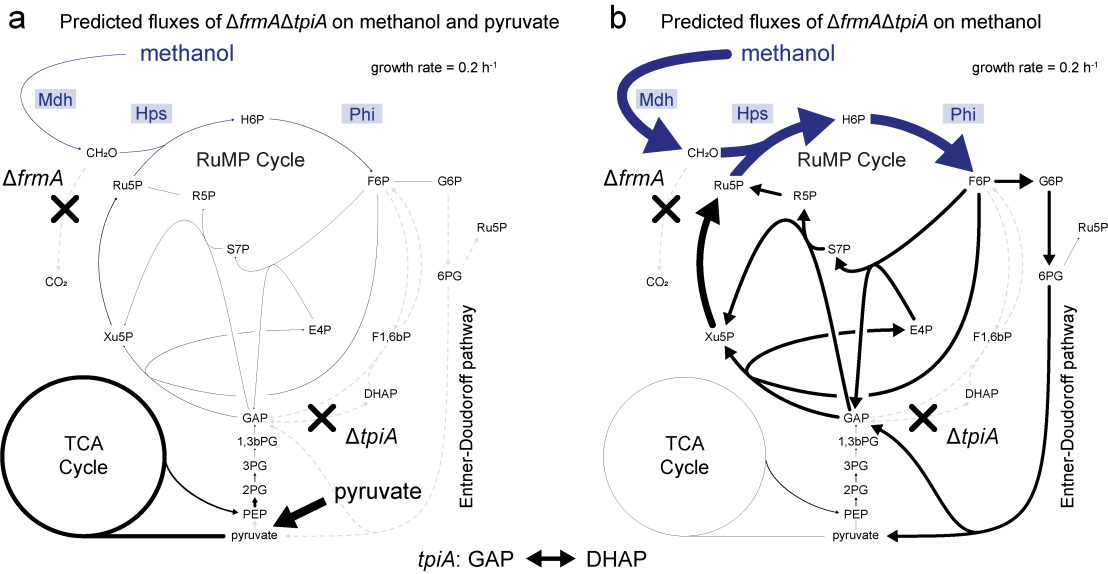Synthetic methylotrophy for methanol biotransformation
The generation and conversion of renewable methanol, produced from the greenhouse gases carbon dioxide or methane, is a promising avenue for reducing greenhouse gases and replacing fossil fuels. The Vorholt lab has converted the biotech strain E. coli into an organism that feeds on methanol, laying the foundation for its sustainable valorization in the future.

To offset the rising concentration of carbon dioxide and methane in the atmosphere, new sustainable technologies are being developed to convert them into base chemicals or fuels. Methanol is particularly attractive in this regard due its high energy storage capacity. This one-carbon compound is used for chemical conversions, but also has high potential for biotransformation. To enable the efficient valorization of methanol, the Vorholt lab (Institute of Microbiology) set out to generate a variant of Escherichia coli, one of the workhorses of biotechnology, that can live on this renewable resource. This bacterium cannot naturally utilize methanol, but lead authors Philipp Keller and Michael Reiter have changed that. They transformed the sugar-loving bacterium into a derivative of itself that builds up all its biomass from methanol. To achieve this challenge, they used a combination of rational engineering and laboratory evolution. Now the strain is able to grow solely on methanol as an energy and carbon source, as they show through metabolic tracer analysis.
In the future this work can be used to sustainably produce various value-added chemicals independent of traditional biotech feedstocks.
Link to the paper in external page "Nature Communications".